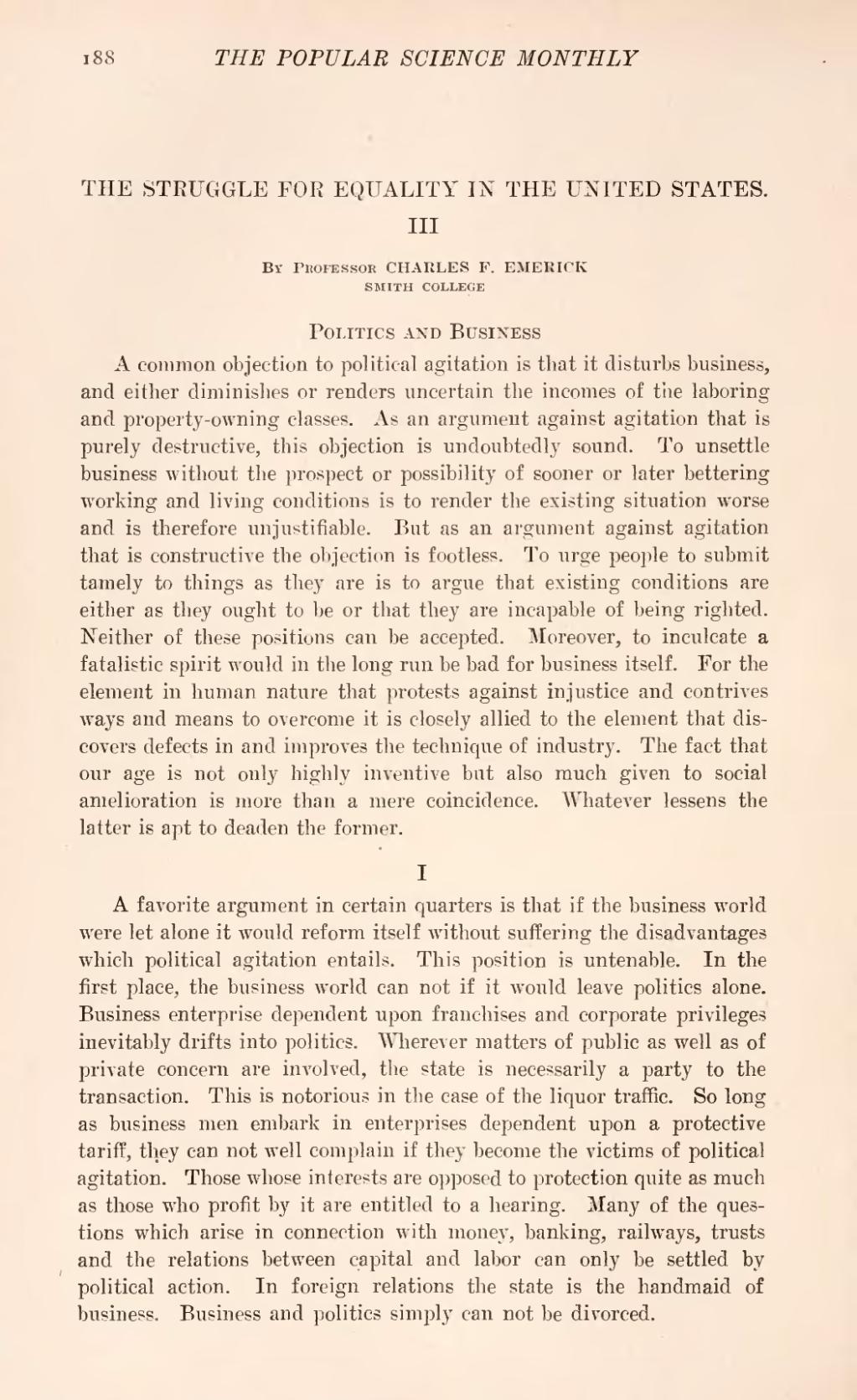| THE STRUGGLE FOR EQUALITY IN THE UNITED STATES. |
III
By Professor CHARLES F. EMERICK
SMITH COLLEGE
Politics and Business
A common objection to political agitation is that it disturbs business, and either diminishes or renders uncertain the incomes of the laboring and property-owning classes. As an argument against agitation that is purely destructive, this objection is undoubtedly sound. To unsettle business without the prospect or possibility of sooner or later bettering working and living conditions is to render the existing situation worse and is therefore unjustifiable. But as an argument against agitation that is constructive the objection is footless. To urge people to submit tamely to things as they are is to argue that existing conditions are either as they ought to be or that they are incapable of being righted. Neither of these positions can be accepted. Moreover, to inculcate a fatalistic spirit would in the long run be bad for business itself. For the element in human nature that protests against injustice and contrives ways and means to overcome it is closely allied to the element that discovers defects in and improves the technique of industry. The fact that our age is not only highly inventive but also much given to social amelioration is more than a mere coincidence. Whatever lessens the latter is apt to deaden the former.
I
A favorite argument in certain quarters is that if the business world were let alone it would reform itself without suffering the disadvantages which political agitation entails. This position is untenable. In the first place, the business world can not if it would leave politics alone. Business enterprise dependent upon franchises and corporate privileges inevitably drifts into politics. Wherever matters of public as well as of private concern are involved, the state is necessarily a party to the transaction. This is notorious in the case of the liquor traffic. So long as business men embark in enterprises dependent upon a protective tariff, they can not well complain if they become the victims of political agitation. Those whose interests are opposed to protection quite as much as those who profit by it are entitled to a hearing. Many of the questions which arise in connection with money, banking, railways, trusts and the relations between capital and labor can only be settled by political action. In foreign relations the state is the handmaid of business. Business and politics simply can not be divorced.
